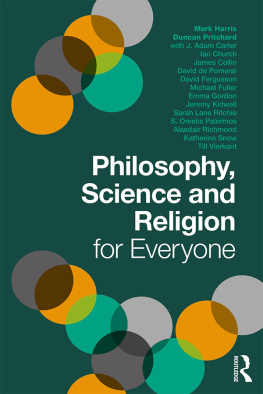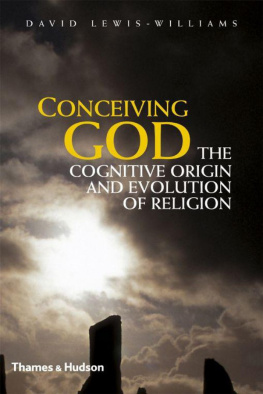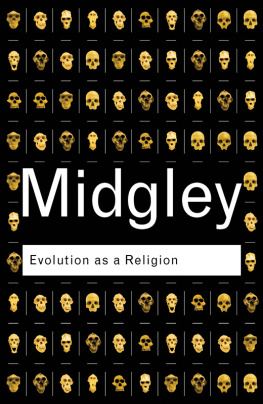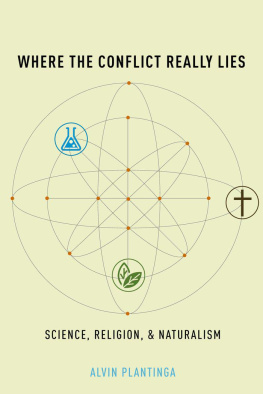T HE R ELIGION V IRUS
by Craig A. James
Copyright 2010, Craig A. James. All rights reserved.
First published by O-Books, 2010
O Books is an imprint of John Hunt Publishing Ltd., The Bothy, Deershot Lodge, Park Lane, Ropley, Hants, SO24 OBE, UK
Kindle Edition published October, 2010
Text and photographs copyright 2010, Craig A. James
Book Design: Craig A. James
Cover Art: Luke Foley, Studio O, Victoria, Australia
All photographs: Craig A. James
All rights reserved. Except for brief quotations in critical articles or reviews, no part of this book may be reproduced in any manner without prior written permission from the author.
T HE R ELIGION V IRUS
Craig A. James
Table of Contents
1. Why is Religion Like an Elephant's DNA?
1. Why is Religion Like an Elephant's DNA?
Abraham's God
He was a wise man who invented God.
Plato
Most modern Christians, Jews and Muslims would be quite surprised to learn that the Yahweh worshipped by Abraham (also called El , Elohim and Jehovah ) was quite different than the almighty God we know today. Abraham's God was made of flesh-and-blood. He was a god of war, jealous and vengeful, more than ready to commit genocide, wipe out humanity with a flood, and many other deeds that made him quite the opposite of the loving, Almighty God we know today. Abraham would have a hard time believing that his Lord and the modern God Almighty are one and the same.
Not only that, but Abraham, as well as all of his descendants down to Moses' time and even beyond, were polytheists , that is, pagans. To them, Yahweh was just one god among many. There were so many other gods competing for (and getting) their attention that Yahweh had to make a special deal with them: He offered his military protection, and in return the Israelites had to forgo their other gods and worship only Yahweh. In the days of Abraham, Yahweh simply didn't command the same unquestioned loyalty that He does today.
The loving, omnipotent, fatherly God we learn about today is the result of the longest and best "marketing makeover" in history four thousand years of changes and improvements to Yahweh's image, from Abraham's time to today. Yahweh has evolved into the Almighty God, the God of everything, the loving, forgiving God, the only God. The Yahweh makeover is so complete that we just call him "God" now, with a capital "G". We don't have to distinguish God from the other gods, because most Westerners are monotheists. Yahweh completely dominates Western religions. The other gods that Abraham and Moses believed in are either forgotten, or are grouped together under the dismissive title "mythology."
How did this happen? Did someone in Abraham's time, or Moses' time, realize that Yahweh had an "image problem" that needed polishing up? How did Yahweh change from Abraham's god-of-armies into our God Almighty?
Religious scholars might tell us that Yahweh was always the God we know today, that only our understanding of God has changed. Noah, Abraham, and Moses lived in simpler times, so God presented himself to them in a simpler way, one they could understand. Over the millennia, as our societies and culture matured, God was able to reveal more and more of his all-knowing, loving, all-powerful self to us. These religious scholars might tell us that God guided His prophets through divine intervention to shape our Bibles, Torahs or Qur'ans, so that today, we can hold God's actual words in our hands, and have a true understanding of God's greatness.
But we're here today to offer a different version of Yahweh's makeover, a different way of looking at this history. This is the story about how humans shaped God's image, not the other way around. We're going to learn how the transformation of Abraham's god-of-armies to our God Almighty is the result of an evolutionary process, the powerful and inexorable forces known as "survival of the fittest." But it was cultural evolution, not biological evolution, that was at work, changing and improving Yahweh's image over the millennia. And it wasn't just Yahweh who was shaped by cultural evolution; these same forces created and refined all of ourreligious beliefs.
So just what is "cultural evolution," and how does it work?
The Replicating Chicken Meme
God is a comic playing to an audience that's afraid to laugh Voltaire (1694-1778)
"Why did the chicken cross the road?" What a dumb joke. But you've heard it, right? And you know the retort. Why is this stupid joke one of the most pervasive and reliable bits of verbal information ever passed from one human to another? W hy is it passed, with extreme accuracy, to virtually every child? What makes children tell it to each other, year after year, generation after generation?
This is not a trivial question; it illustrates a deep and profound insight into human culture, that some ideas can be passed verbally and with high fidelity, but additionally, that these facts are passed along whereas other ideas fade into history. Something about the chicken joke causes it to reproduce itself . The joke itself contains the means for its own survival it makes children want to repeat it.
The chicken joke is a perfect example of a self-replicating idea , an idea that makes you want to repeat it to someone else. Whether it's a joke, an urban myth, a great story, or a hard lesson you've learned that you want to tell your children, each of these things carries within it the "seed" that causes it to be retold, to be copied from one human brain to another. In other words, each of these carries more than just the message itself; it also carries a motivation that makes you want to retell it. The message is the obvious, overt part of the joke, urban myth or lesson. The motivation is a consequence of the message's contents, yet it is equally important. Without the motivation, the idea would die out.
Notice that this is a lot like how our genes work: Genes carry information, just as a joke carries information. In the case of DNA, the information is chemical instructions telling a cell how to build certain proteins, a "blueprint" if you will, for the stuff your body needs to live. But the DNA's "motivation" is just as important: Those proteins ultimately cause the lifeform, whether it's a bacterium or an elephant, to copy itself, to make more copies of the DNA. Without this motivation, the DNA would die out in short order.
So your DNA shares a fascinating trait with jokes, urban myths and hard-learned lessons: They all contain a message and a motivation to reproduce.
Richard Dawkins was the first to recognize the parallels between ideas and genes, but he didn't think it was just an amusing analogy. Dawkins realized there was something deeper, that even though biological life and ideas are radically different, there is an important underlying theory that ties the two together. Because these self-replicating ideas were so much like genes, Dawkins coined the term meme (a "mnemonic gene").
A long time before Dawkins, Albert Einstein realized that energy and matter were really one and the same thing, just different aspects of a single concept. Before Einstein, the physicists Michael Faraday and James Clerk Maxwell realized that electricity and magnetism, two seemingly different phenomena, were really just two different faces of a single thing. And even earlier still, Ren Descartes and Pierre de Fermat showed that algebra and geometry, which might seem like two entirely different studies, were essentially the same thing, just seen from different perspectives. In each of these cases, a great mind recognized that two seemingly different ideas have a single underlying principle that, once discovered, unifies the two concepts into one and gives a deeper understanding of both.
Next page







